Grains are seeds of certain grass plants we eat as food. They are regarded as staple foods, because they form a core part of the diet of most people, as they are eaten almost every day.
Here in Nigeria, we eat grains a lot. Some examples of grains include rice, millet, wheat, quinoa, and more.
Grains are divided into three parts; the bran, or the outer layer, the germ, or the embryo, and the endosperm, which is the part where nutrient is stored. Not all grains have all three parts intact. The ones that do are referred to as whole grains.
Whole grains are considered to be more nutritious and healthier than regular grains. In addition to carbohydrates, they are also rich in iron, phosphorous, magnesium, manganese, and more.
People who are told to avoid regular grains, like those with diabetes and cancer, often have whole grains recommended for them. While regular grains are not bad in any way, whole grains are just considered healthier.
In today’s post, we would be looking at seven healthy whole grain foods in Nigeria.
1. Brown Rice

While white rice is not considered as a whole grain, because the bran and germ are missing, brown rice has all three parts.
This is why it is often recommended to those with diabetes and other conditions. Brown rice is also great for those who do not eat gluten as it is gluten-free.
It has more fibre content, as well as other vitamins and minerals. It also contains antioxidants. All of these make it a very healthy option.
Here in Nigeria, brown rice or ofada rice is cheaper, compared to white rice, which is enough reason why you should think of replacing your regular white rice with it.
2. Millet
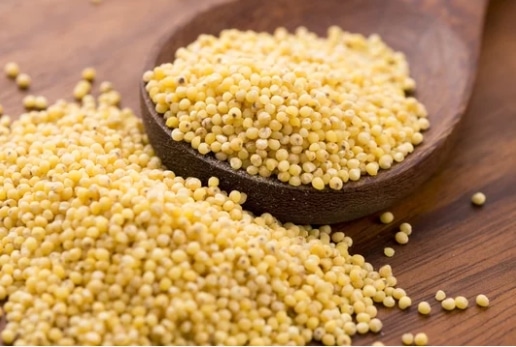
Millet is another popular whole grain, with a lot of uses. In the north, it is used to make fura, which is a kind of meal made into balls, eaten with nono, a type of local yoghurt.
Millet is also used to make pap, as well as other cereals. Millet can be used to make kunu drink, known as kunu zaki. But it can also be cooked and eaten, like rice.
Millet is also gluten-free and rich in various nutrients like magnesium, potassium, and zinc. Eating millet helps to control blood sugar levels and also reduce inflammation in the body.
3. Oats
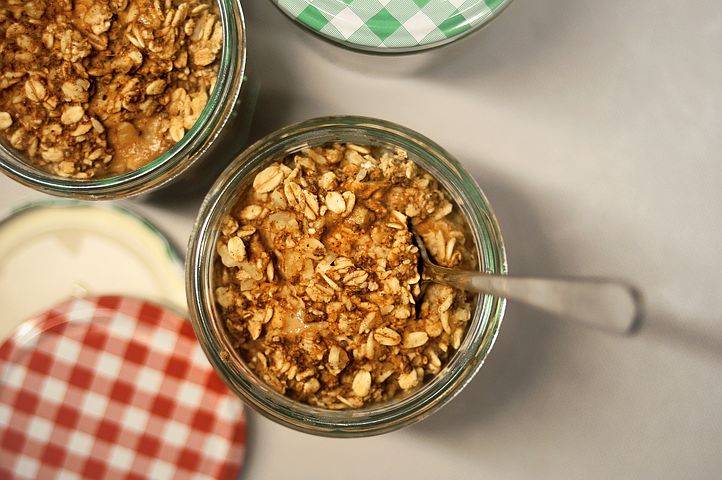
Who does not love oats? Oats do not just make for a great breakfast because they are tasty, but also because they are healthy, for the fact that they are whole grain.
The fibre content in oat keeps you fuller for longer. This makes it great for those who want to lose weight and also for those who want to reduce how often they eat.
Oats are also rich in beta-glucans, which is a kind of fibre that aids the digestion process. This prevents constipation and other kinds of gut problems.
4. Corn
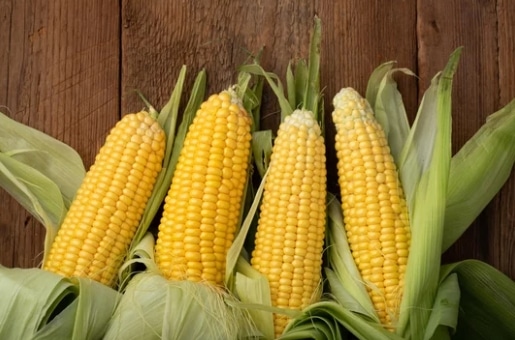
Corn is another whole grain food that many people love. Here in Nigeria, we enjoy corn in so many ways including boiling and roasting and various other ways people choose to have it.
Corn is a great treat and the fact that it is a whole grain food makes eating it more satisfying. Sweet corn or yellow corn is richer in nutrients and minerals.
5. Popcorn
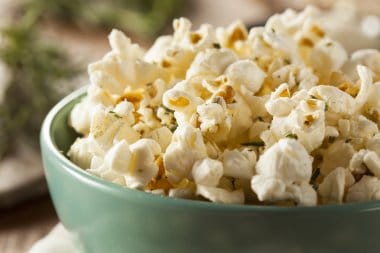
Popcorn is a popular snack in Nigeria, and also one of the most common whole grain foods in Nigeria. Yes, popcorn is a whole grain.
Popcorn kernels are intact grains, which are dried to reduce their moisture content until it is at the right level for popping.
Pop corns are incredibly rich in fiber, manganese, magnesium, copper, phosphorus, zinc and B vitamins.
However, you should avoid buying prepackaged microwave bags of popcorn, as they might contain harmful chemicals.
6. Acha (Fonio)
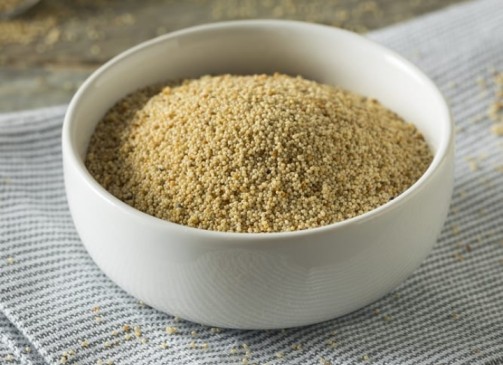
Fonio is an ancient African grain that is regarded as the continent’s oldest cultivated cereal.
It is cultivated in many parts of Nigeria and is also known as Acha or hungry rice.
Acha is usually eaten in its entirety and hence considered a whole grain.
It is also a great source of plant-based amino acids, and may help regulate blood sugar levels, plus it’s naturally gluten-free.
7. Whole-wheat flour
Whole-wheat flour is a type of flour that is derived by grinding or mashing the whole grain of wheat.
Whole-wheat flour is typically used in baking of breads and other baked goods.
All whole wheat products are whole grain are loaded with fiber.
Conclusion
Whole grain are grains that contain the bran, the germ, and the endosperm. Whole Grain foods are highly nutritious, and there are so many health benefits of eating whole grain foods. Some of the common whole grain foods in Nigeria are millet, popcorn, brown rice, corn and oats.
YOU SHOULD ALSO READ:
- 10 Nigerian Foods to Avoid When Trying to Lose Weight
- 5 Healthy Finger Foods in Nigeria
- 8 Healthy Nigerian Foods Rich In Probiotics
- 5 Healthy Nigerian Alkaline Foods
- 7 Healthy Nigerian Foods for Hypertensive Patients
- 8 Nigerian Foods That Are Rich In Folic Acid
- 12 Nigerian Foods That Boost Breast milk Production
- 8 Healthy Nigerian Foods for Babies
Collins Nwokolo is a human physiologist, writer and health enthusiast. He loves writing helpful articles on health and fitness, which he enjoys sharing with everyone.






Imela Mazi Collins Nwoko, at least I have a least of food that I need. I am a slim young man and I want to build my body.
Hopefully, I will look nice with these list.
Thanks.